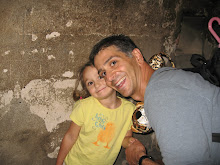There are, of course, many things to learn from the study of literature. Great literature sometimes deals in the Truth, but more often it deals in truths: observations about life, society, people and events. I like to think of literature as providing a map to the human heart: what motivates people or scares them, or what affects them.
In this respect, it might be easy to view the study of literature as if an imperfect human science, like sociology or psychology. But it is, in fact radically different.
Fundamentally, sociology deals with populations. It can reduce the activity of a group to a statistic, but it cannot examine the inner life of an individual.
Like literature, psychology deals with individuals from the inside, but its fundamental focus is on pathologies. It examines the behaviors of the ill, and works to treat their illnesses.
As valuable as both sociology and psychology are, they do not examine the human soul, not really. Evidence? Influential psychological theorists, like Carl Jung and Bruno Bettelheim drew many insights from their patients, but also from the folklore (Jung, mythologies; Bettelheim, fairy tales). And Sigmund Freud mined literature for its insights, from Greek mythology to Leonardo da Vinci. Surely their patients provided them ample factual evidence for their theories—so why would they make recourse to literature?
Great authors are keen observers of human activity. In literature, they use their creativity to convey those observations in realistic ways. Even when dealing with extreme characters, great literature gets inside their heads and makes their actions understandable. But because it deals in narrative, literature does not portray the human soul in a vacuum—as if the soul can be reduced to a few key drives, with social forces or historical events playing a minimal role. Literature instead shows individuals interacting with a society, historical period, or other similarly flawed people. In great literary works, human beings are never simply islands unto themselves, nor mere automatons motivated by external forces. It is, instead, a complex dance of inner-motivations and external forces, both at play in the destiny of an individual.




No comments:
Post a Comment
Note: Only a member of this blog may post a comment.